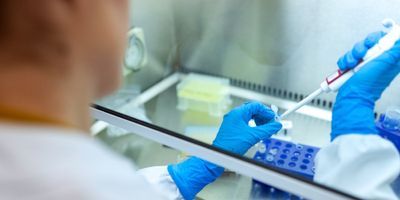Sherlock and Tolo create CRISPR agreement
Sherlock Biosciences gains exclusive rights to Tolo Biotech’s Cas12 technology

CAMBRIDGE, Mass. & SHANGHAI—Sherlock Biosciences announced today that it has entered into exclusive license agreements with Shanghai-based Tolo Biotech.
Tolo Biotech has granted Sherlock exclusive U.S. rights to its CRISPR-Cas12 diagnostic technology, including Cas12a and Cas12b. For its part, Sherlock granted Tolo exclusive rights to the CRISPR-Cas13 SHERLOCK diagnostic platform in Greater China. The financial details of the arrangement were not disclosed.
“We are very pleased to enter this agreement with Tolo, which complements Sherlock’s diagnostic rights to the Cas12 and Cas13 proteins licensed from the Broad Institute. With the addition of these exclusive Cas12 rights to Sherlock’s IP portfolio, as well as partnering with Tolo as our exclusive partner in China, we have secured our position as the global leader in CRISPR diagnostics,” said Rahul Dhanda, co-founder, president and chief executive officer of Sherlock Biosciences.
“The advent of CRISPR technology is ushering in the next generation of molecular diagnostics. This agreement with Sherlock will enable both companies to develop diagnostic tools that can detect multiple pathogens or targets, improving disease screening, precision medicine and beyond,” added Jin Wang, co-founder and chief science officer of Tolo Biotech. “Tolo highly values this opportunity for close collaboration with Sherlock to promote the development of CRISPR diagnostics.”
The SHERLOCK diagnostic platform can achieve single molecule detection of nucleic acid targets. SHERLOCK utilizes CRISPR activity for “smart amplicon detection,” and it can be adapted for use with existing diagnostic instruments.This improves time to result, due to its significant multiplexing capacity. When a specific sequence of DNA or RNA is present, a CRISPR enzyme is activated and starts cutting nearby genetic material, releasing a fluorescent signal that indicates a positive result.
In May, Sherlock received Emergency Use Authorization for its Sherlock CRISPR SARS-CoV-2 kit — the first FDA-authorized use of CRISPR technology.
“During what is a major healthcare crisis across the globe, we are heartened that the first FDA-authorized use of CRISPR will aid in the fight against this global COVID-19 pandemic,” noted James J. Collins, co-founder and board member of Sherlock Biosciences and Termeer Professor of Medical Engineering and Science for MIT’s Institute for Medical Engineering and Science (IMES) and the Department of Biological Engineering.
Access to rapid diagnostics is critical in combatting the COVID-19 pandemic, and it’s a primary focus for Sherlock Biosciences co-founder and board member, David R. Walt, Ph.D., who co-leads the Mass General Brigham Center for COVID Innovation.
“SHERLOCK enables rapid identification of a single alteration in a DNA or RNA sequence in a single molecule,” Walt stated. “That precision, coupled with its capability to be deployed to multiplex over 100 targets or as a simple point-of-care system, will make it a critical addition to the arsenal of rapid diagnostics already being used to detect COVID-19.”

